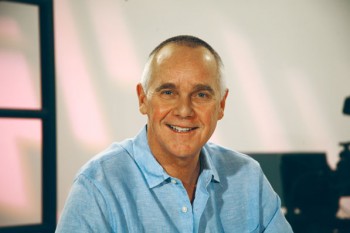 Erika Estrada
Erika Estrada
Executive Director,
Business & Legal Affairs
Ole Communications Group—
E! Entertainment Latin America
“Simply put, it isn’t all glitz and glamour. What exactly does this mean? When people think of the entertainment industry, they think of beautiful celebrities, fabulous events, and amazing perks. While this industry is certainly teeming with all of these elements, there is much more to it—particularly for those of us who work behind the scenes to ensure that what is presented on-screen, online, and in the press, is glitzy and glamorous.
Contrary to popular belief, working in the entertainment industry—and more specifically, working for a multinational, multimedia entertainment company—is no nine-to-five job. There is a reason why “show business” is a business: Entertainment executives must weigh commercial interests against potential financial and legal risks in carrying out such commercial interests. This analysis does not take place over the course of an eight-hour work day. Because of the fast-paced, competitive nature of the entertainment world, entertainment executives cannot mull over each risk so much that they chance losing a deal in its entirety, and as such industry executives must make optimal use of their time—and this often means sacrificing personal time to close a deal and to ensure that the deal is as favorable as possible.
For example, any time a television channel launches a new series, a whole host of people have worked tirelessly to ensure that [it] is appealing to its target audiences or consumers, and that launching the series makes sense to the television channel from a business standpoint. Such work include weeks, months, and even years of strategic planning, business meetings, financial forecasting, and contract negotiations.
Before the behind-the-scenes work of a television-production set, recording studio, or social network can even begin, several people must collaborate to ensure that such production will maximize value and minimize risks to the company wishing to create it. While this part of the process may not be glitzy and glamorous, seeing the fruits of such labor—a successful, popular end product that entertains people—certainly is.”
 Luca Bentivoglio
Luca Bentivoglio
Chief Operating Officer of LATV & Chairman of The Imagen Foundation
“Everyone thinks that working in film and TV means you will be surrounded by beautiful people, travel to exotic places, and stay in four-star hotels. While this may happen a few times in a career, the daily grind of most jobs in this industry is not different from others: there is pressure to succeed, to be profitable, to increase ratings, to keep an audience that is more fragmented every day, to lure young viewers, and to convince advertisers your network or channel is the next big thing. This takes effort, hard work, long hours, discipline, and a special kind of focus that does not allow you to be distracted by the next award, gala, or red carpet. Show business is more business than show!”
 Angela N. Martinez
Angela N. Martinez
Vice President of Business Affairs Capitol Latin
“Time and time again, I am pleasantly surprised that those that have had the longest run in the entertainment business are some of the most humble people around, with an undying work ethic. Why? Because relationships drive this industry. I personally started in the business as an intern—I made copies, made coffee, stayed late, dropped packages off at FedEx. I slowly but surely learned what every department in a record label did and how they all worked together. I then transitioned to a music publisher, and understood the nuts and bolts of the actual creation of a song. I then went off to have my own law firm to fit the pieces of the music industry puzzle together to the tune of millions of dollars in my clients’ bank accounts. Ten-plus years after my internship, I am proud to say that I was able to buy a condo office in the same building I had started my internship at.
During that time, there were those that treated me as less than human because I was the “intern.” Alternatively, there are those that took me in and became my mentors. One thing that I never forgot was who was who. I hear of stories where the receptionist became the president of the label and the bartender ended up owning the club—those people get it.
Unfortunately, too many times I have also had to deal with power addicts, people who think they can say barbaridades or treat people unfairly because they think they’re powerful and going to always be on top. Those are the people that end up falling and, more typically than not, reach out to those they mistreated, asking for help —as if they had always been their best friends!
This business is very temperamental, it is very political, it is very sexist—but talent will always shine through. The survival strategy is to do you and be grateful to your own support system. Prove yourself with your positivity, motivation, dedication, and above all, humility. Like mami says, “en boca cerrada, no entran moscas!’”
 Mariela Encarnación
Mariela Encarnación
Anchor Showbiz on CNN en Español
“I have noticed something throughout my interviews with big Hollywood celebrities … Even though the audience sometimes tends to idolize them, we constantly realize that their lives are so hectic just like any other person’s life and in some occasions it’s worse because they have to carry the enormous weight of fame, which sometimes doesn’t allow them to freely perform their family and even professional duties. Because of this, the vast majority wishes to sometimes go unnoticed and be able to live normal lives without the enormous responsibility that they have of being a showbiz star.”




